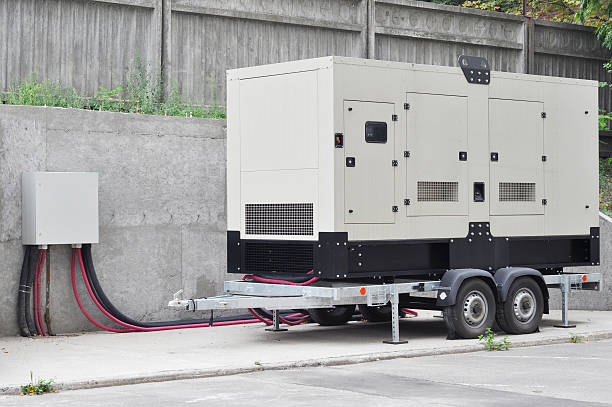When the lights go out, a good generator can be a real lifesaver! Generators aren’t just handy during a power cut; they’re a must-have at campsites, big outdoor parties, and in many industries that need constant power. In this post, we’ll take you through the different types of generators you might come across and what each type is best for. Whether you’re keeping your fridge running during a storm, powering a drill on a construction site, or making sure a hospital has the power it needs, there’s a generator out there made just for the job. This blog will help you to understand 10 different types of generators with Ferezco Power Systems and find the perfect one for your needs!
1. Portable Generators: Reliable Power Wherever You Go
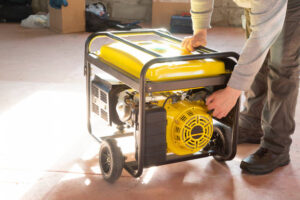
Portable generators are a must-have if you love adventures or need backup power that’s easy to move around. These generators are your best friend during blackouts, outdoor events, or small jobs away from a power source. They’re lightweight, easy to use, and can power everything from lights to kitchen appliances during emergencies or fun times at a campsite.
2. Inverter Generators: Efficient and Quiet Energy on Demand
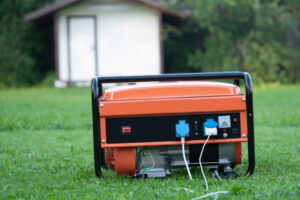
Inverter generators are the modern solution to noiseless and efficient power. They are perfect for outdoor gatherings where you don’t want the rumble of a traditional generator drowning out conversations or for powering sensitive electronics like computers and smartphones safely. Their smart technology adjusts the engine speed to match only the power you need, which saves fuel and cuts down on noise.
3. Standby Generators: Instant Power During Unexpected Outages
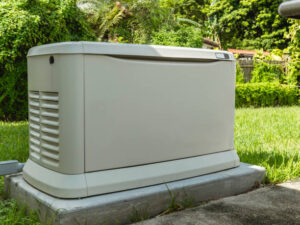
Standby generators are your silent guardians that automatically power up the moment electricity fails. Installed permanently near your home or business, they’re always ready to ensure your life goes uninterrupted, whether during a storm or an unexpected blackout. Essential for places that cannot afford a power break like hospitals, data centers, and homes with critical medical equipment.
4. Industrial Generators: Powering Through High-Demand Situations
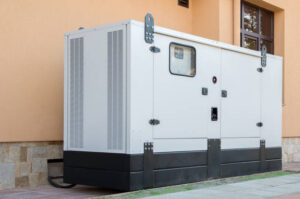
Industrial generators are powerhouses designed to meet the robust energy demands of big operations such as manufacturing plants, large construction sites, and commercial hubs. They are built to perform in tough conditions, providing a steady and reliable power supply to keep heavy machinery and essential systems running smoothly, ensuring productivity never takes a hit even in the face of major power failures.
Related: A Basic Guide to Home Electrical Wiring Types Sizes Installation
5. Diesel Generators: Robust and Reliable
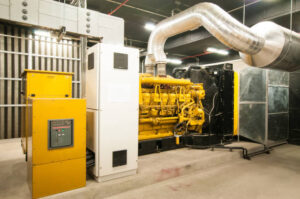
Diesel generators are the tough ones in the generator family, known for their reliability and efficiency. These generators are ideal for situations where long-lasting power is crucial, such as in construction sites, large events, or during extensive power outages. Diesel engines are more fuel-efficient compared to gasoline engines, meaning they can run longer on the same amount of fuel. They’re a bit noisier but make up for it with their power and durability. In remote areas or places where maintaining power is critical, a diesel generator is often the first choice. Their ability to handle heavy loads and tough conditions makes them suitable for industrial operations and emergency backup for businesses.
6. Gasoline Generators: Convenient and Accessible
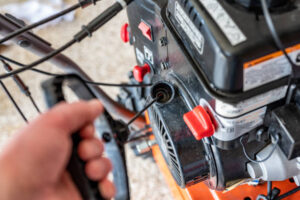
Gasoline generators are perhaps the most commonly used type of generator due to their convenience and availability. These generators are smaller and lighter, making them ideal for home use, small businesses, and temporary setups like outdoor fairs or markets. Gasoline is readily available, and these generators are easy to refuel, which is a big plus in emergency situations. However, they do require more maintenance and are not as fuel-efficient as diesel generators. They work best for short-term use where a moderate amount of power is sufficient. Their ease of use and portability makes them a favorite for casual or less frequent applications.
7. Natural Gas Generators: Clean and Efficient
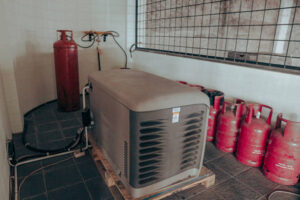
Natural gas generators offer a cleaner alternative to their diesel and gasoline counterparts. They run on natural gas, which burns cleaner and emits fewer pollutants. These generators are typically used in places where natural gas is readily available through utility lines. They are a popular choice for businesses and homes as they can be connected directly to existing gas lines, providing a nearly uninterrupted power supply. Natural gas generators are especially useful in urban settings where reducing emissions is a priority. They require less maintenance than diesel and gasoline generators and operate very quietly, making them neighbor-friendly in residential areas.
8. Propane Generators: Versatile and Environmentally Friendly

Propane generators are known for their versatility and environmental benefits. Propane burns cleaner than gasoline or diesel, producing fewer exhaust emissions and making it a more environmentally friendly choice. These generators start easily in cold weather, making them suitable for use in various climates and seasons. They are available in portable models that are easy to refuel and ideal for occasional use in homes, RVs, or camping trips. Propane can be stored indefinitely, which is a significant advantage for emergency preparedness. For businesses that prioritize sustainability, propane generators are an excellent backup power solution that aligns with green energy goals.
9. Hybrid Generators: Best of Both Worlds
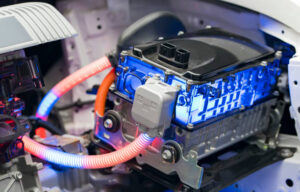
Hybrid generators are the smart choice for those who need flexibility and efficiency in their power supply. These generators combine two or more sources of power, typically diesel or gasoline with batteries or renewable energy like solar. This combination allows them to optimize fuel consumption and reduce emissions, making them a popular choice for environmentally conscious users.
Hybrid generators automatically switch between fuel and battery power depending on the load, which helps conserve energy and extend the generator’s lifespan. They are particularly useful in areas where fuel is expensive or difficult to transport. With their ability to recharge batteries when excess power is available, hybrid generators provide a continuous power supply without the need for constant refueling.
This type of generator is ideal for remote construction sites, outdoor events, and backup power for homes and businesses that experience frequent power outages. They are also beneficial for use in eco-friendly projects and locations where noise restrictions are in place, as they operate much quieter than traditional generators when running on battery power.
Related: Types of Electrical Wires and Cables and Their Uses
10. Solar Generators: Clean, Quiet, and Sustainable
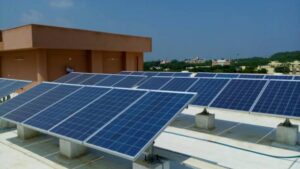
Solar generators harness the power of the sun to generate electricity, making them the cleanest and most sustainable option available. They are completely free from emissions, operate silently, and require very little maintenance, which makes them particularly suited for residential use and small-scale applications like camping or small outdoor gatherings.
Solar generators work by converting sunlight into electrical energy using photovoltaic (PV) panels. This energy is stored in batteries and can be used on demand, even when the sun isn’t shining. While the initial setup cost for solar generators can be higher than other types, the long-term savings on fuel and maintenance can be significant. Moreover, they offer independence from the utility grid and are not affected by fuel price fluctuations.
These generators are especially popular in sunny regions but are also equipped with technology to capture sunlight even on cloudy days. They are an excellent choice for anyone looking to reduce their carbon footprint and promote sustainable living. Whether it’s for powering a home during an outage, providing energy for a remote cabin, or keeping lights and cameras charged during an outdoor event, solar generators provide reliable power without any of the guilt associated with fossil fuels.
Factors to Consider When Choosing a Generator
When you’re in the market for a generator, whether for home, work, or play, making the right choice involves considering several important factors. This decision can significantly affect your convenience, budget, and safety, so let’s break down what you need to keep in mind:
- Purpose and Usage: The first question to ask is what you need the generator for. Is it for occasional emergency home use, regular use at a job site, or frequent use at outdoor events? The intensity and frequency of use will determine the type of generator you should consider.
- Power Requirements: Calculate the total wattage of all the devices and appliances you plan to run simultaneously. This will help you choose a generator that can handle the load without straining. Remember, overloading a generator can lead to failures and may shorten its life.
- Fuel Type: Generators run on various fuels, including diesel, gasoline, propane, natural gas, or even solar power. Each has its pros and cons related to availability, storage, cost, and environmental impact. For instance, diesel generators are fuel-efficient and durable, while solar generators are sustainable and operate silently but may have limitations in cloudy or rainy weather.
- Runtime: How long do you need the generator to run between refueling or recharging? This depends on your use case; for extended power outages, a generator with a long runtime or one with easy refueling options might be preferable.
- Portability: If you need to move the generator between locations or use it in remote areas, consider its size and weight. Portable generators are handy for camping or tailgating, while standby generators are suitable for permanent setup to back up homes or businesses.
- Local Regulations: Some areas have strict regulations regarding noise levels and emissions from generators. Check the local laws to ensure compliance, especially if you are in a residential area or environmentally sensitive zone.
Features to Look For in a Generator
Once you’ve considered the basic requirements and type of generator you need, it’s time to look at specific features that can enhance convenience, safety, and efficiency:
- Automatic Start: This feature is a game-changer for standby home generators, allowing the generator to start automatically during a power outage without your intervention. It ensures continuous power supply especially critical for running essential appliances like refrigerators and medical equipment.
- Inverter Technology: For powering sensitive electronics such as laptops, smartphones, and medical devices, choose a generator with inverter technology. It provides clean, stable power that mimics utility-supplied electricity, preventing damage to delicate circuits.
- Multiple Outlets: Having a variety of outlet types and voltages can increase the versatility of your generator, allowing you to power different devices simultaneously.
- Fuel Gauge and Meter: A fuel gauge helps keep track of fuel levels, preventing unexpected shutdowns. Additional meters for voltage, wattage, and runtime can help manage power use effectively and maintain the generator.
- Low-Oil Shutoff: This safety feature automatically shuts down the generator when oil levels are too low, protecting the engine from damage and potentially saving costly repairs.
- Soundproofing: If noise is a concern, look for generators designed with sound-reducing technologies or enclosures that minimize noise output—essential for residential areas or night-time operations.
- Warranty and Support: Always check the warranty provided with the generator. A longer warranty period and accessible customer support can save you hassle and expense over the life of the generator.
Applications of Different Generators
Home Use
Generators for home use are a true backup when the electricity goes off. They power up your lights, fridge, and even air conditioners so your home life runs smoothly without any trouble. Many choose portable or standby generators depending on how often they face power cuts. Portable ones are easy to store and can be brought out when needed, while standby generators automatically turn on when power goes off, saving you the hassle during storms or sudden blackouts. They make life easier and safer, ensuring you’re never left in the dark.
Business Use
Businesses rely heavily on generators to keep operations running during power outages. Whether it’s a small shop or a large office, having a reliable source of power ensures that computers, machinery, and lights stay on, preventing loss of productivity and data. For bigger facilities like hotels or hospitals, standby generators are crucial as they provide a seamless power supply that kicks in without manual intervention, crucial for maintaining services and safety.
Outdoor and Recreational Use
Outdoor lovers and event organizers often use portable or inverter generators to bring power to places without grid access. These are perfect for camping, tailgating, and outdoor parties where you might need to power lights, music systems, or cooking appliances. Inverter generators are particularly favored for their quiet operation and fuel efficiency, making them ideal for nature trips where you don’t want the noise to disturb the peace.
Large Scale Applications
On construction sites and in industrial settings, large scale generators are essential. They power heavy machinery and critical systems that need constant electricity to operate safely and effectively. These robust generators are designed to handle big loads and harsh conditions, ensuring that large scale operations do not grind to a halt. For industries that cannot afford even a minute of downtime, such as manufacturing plants, these generators are investments that protect against unexpected power disruptions.
Related: What Is a Ground Wire, and Why Is It Important?
Safety and Maintenance Tips
- Regular Checks and Maintenance
- For All Generators: Regular maintenance is key. Check oil levels, fuel systems, and air filters every few uses to ensure smooth operation. For those not comfortable doing it themselves, it’s wise to schedule regular check-ups with a professional.
- For Portable Generators: Make sure to run your portable generator in a well-ventilated area to avoid carbon monoxide poisoning. Never run a generator inside homes, garages, or near windows and vents.
- Proper Usage
- For Home Use: Ensure your home generator is installed by a professional to avoid electrical hazards. Use heavy-duty extension cords intended for outdoor use.
- For Business Use: Businesses should train staff on proper generator operation and have clear guidelines on what to do during a power outage.
- For Outdoor and Recreational Use: Always place generators on a flat, stable surface to prevent tipping. Keep the generator dry and do not use in rainy or wet conditions without proper cover.
- Fuel Handling and Storage
- For All Generators: Store fuel in approved containers and in a safe location away from living areas or heat sources. Check for fuel leaks regularly and repair any issues immediately to prevent fire hazards.
- For Diesel and Gasoline Generators: Rotate your fuel stock every six months to ensure freshness, as stale fuel can damage the engine.
- Battery Care
- For Generators with Batteries: Regularly check battery terminals for corrosion and clean them as needed. Ensure batteries are charged and replace them according to the manufacturer’s guidelines.
- Preparing for Long-Term Storage
- For All Generators: If you plan not to use your generator for an extended period, drain the fuel and oil before storage. Run the generator until it stops from lack of fuel to clear the system, which helps prevent issues when you start it up again.
- Following Manufacturer’s Instructions
- Always refer to your generator’s manual for specific maintenance guidelines and schedules. Different models may have unique needs, and adhering to these recommendations can prolong the life of your generator and ensure it’s ready when you need it most.
Basic Safety Rules
Using generators safely is crucial to avoid accidents and ensure efficient operation. Whether it’s a portable unit for camping or a large industrial generator at a construction site, following basic safety rules can save lives and prevent damage. Here are essential safety tips for all types of generators:
- Ventilation is Key
- For All Generators: Generators produce carbon monoxide, a deadly gas that you cannot see or smell. Always operate generators outdoors, far away from windows, doors, and vents to prevent exhaust fumes from entering the building.
- Proper Installation
- For Standby Generators: Ensure that your standby generator is professionally installed. Incorrect installation can lead to electrical hazards, including shocks and fires. It should be connected using a transfer switch to avoid backfeeding, which is dangerous for utility workers and neighbors.
- Electrical Safety
- For All Generators: Never operate a generator in wet conditions unless it’s under a canopy or other protective cover. Always dry your hands before touching the generator to avoid electric shocks.
- Fuel Safety
- For Portable Generators: Fuel your generator only when it is turned off and cool. Gasoline and other fuels spill over hot surfaces can ignite, so it’s important to fill up safely to avoid fires.
- Distance From Buildings
- For Home and Business Use: Position your generator at least 20 feet away from buildings. Aside from reducing noise pollution, this distance minimizes the risk of fire reaching the building if something goes wrong with the generator.
- Regular Maintenance
- For All Generators: Like any other machine, generators work best when they’re well-maintained. Check the oil and change it as recommended by the manufacturer. Inspect air filters, fuel filters, and spark plugs for wear and replace them if necessary to ensure the unit runs smoothly and safely.
- Store Fuel Safely
- For All Generators: Store generator fuel in a cool, well-ventilated area in properly labeled, non-glass safety containers. Keep the fuel away from any source of heat or fire, like heaters or direct sunlight.
- Keep Children Away
- For Home Use: Generators are not child-friendly devices. Keep children away from generators to prevent burns and other injuries. The area around the generator should be clear of toys and play areas.
Related: How to Safely Operate Your Kitchen Trash Compactor
Maintenance Checklist
Proper maintenance is crucial for ensuring that your generator runs efficiently and safely when you need it the most. Here’s a simple yet comprehensive checklist that anyone can follow to keep their generator in top condition, whether it’s used at home, for business, or outdoor activities:
- Regular Oil and Filter Changes
- For All Generators: Just like cars, generators need regular oil changes. Check the manufacturer’s guidelines to find out how often to change the oil and replace the oil filter. Usually, it’s recommended after every 100 hours of use, especially if you’re using the generator in demanding conditions.
- Inspect and Replace Spark Plugs and Wires
- For Portable and Standby Generators: Spark plugs and wires are crucial for your generator’s performance. Inspect them every season for wear and tear, and replace them if they are damaged or every 200 hours of use. This ensures your generator starts easily and runs smoothly.
- Air Filter Maintenance
- For All Generators: The air filter prevents dirt, dust, and debris from entering your generator’s engine. Check the air filter regularly, especially before heavy use, and clean or replace it as needed to ensure efficient operation.
- Fuel System Checks
- For All Generators: Old or contaminated fuel is a common cause of generator issues. Drain old fuel if the generator has not been used for over a month, and always use fresh fuel with a stabilizer to prevent oxidation. Check for any fuel leaks and ensure the fuel lines are intact and clear.
- Battery Care
- For Standby Generators: Standby generators often come with a battery for electric start. Check the battery charge monthly, especially during seasons when the generator is not in use. Keep the terminals clean from corrosion, and replace the battery as recommended by the manufacturer.
- Cooling System Check
- For Large Scale and Industrial Generators: Make sure the cooling system is functioning correctly to prevent the engine from overheating. Check coolant levels before startup and look for leaks or damaged cooling fins.
- Control Panel and Power Cords
- For All Generators: Regularly inspect the control panel and all associated switches and buttons to ensure they are functioning properly. Check power cords for any cuts, frays, or other damage. Faulty cords can be a serious safety hazard.
- General Cleaning and Inspection
- For All Generators: Keep your generator clean from dirt, mud, and debris. Wipe down the exterior surfaces with a damp cloth, and ensure the area around the generator is clear of any materials that could obstruct airflow or pose a fire risk.
When to Call for a Generator Repair Company
Sometimes, your generator needs more than just regular maintenance, it needs professional help. If your generator won’t start, makes strange noises, or shuts down unexpectedly, it’s time to call experts Ferezco Power Systems. Other signs include visible wear and tear, leaking fuel or oil, and poor power output. Don’t wait for a small issue to turn big; a professional can fix problems and get your generator running smoothly again, ensuring you have reliable power when you need it most. Always choose a trusted generator repair company with experience in handling the type of generator you own to guarantee quality service.

